YANGON—A recent landslide in the Hpakant jade mine region of Kachin State killed at least 172 prospectors, injured more than 50 and left more than two dozen people missing. According to the Kachin State government, there were 19 landslides in Hpakant and Lone Kin in 2019, resulting in 94 deaths. However, the latest disaster was the deadliest the area has seen for five years.
Most of the victims were freelance miners, who scavenge for pieces of jade at the foot of giant mounds of discarded earth excavated using heavy machinery by big mining companies run by the military, its cronies and ethnic armed groups. When the rains come, the mounds become unstable and deadly landslides are frequent.
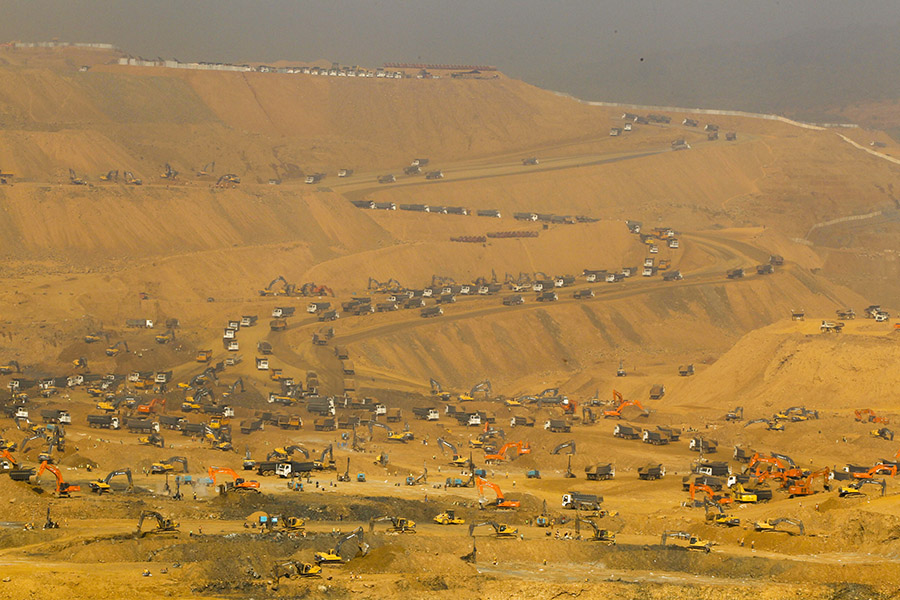
In the wake of the disaster, the government has set up a committee to investigate the accident, while Myanmar’s military sacked the Kachin State security and border affairs minister and took action against an officer commanding a military unit in the area.
Despite the formation of the investigation committee, pictures of the ill-fated jade miners’ bodies laid out in rows that went viral on social media have left anyone who sees them wondering aloud, “Who is responsible for this incident?” and “Why did it happen?”
The following are the views of an environmentalist and a natural resource governance expert on how the government can implement policy reforms to avoid further deadly incidents, and what it can do to reform natural resource governance in Hpakant.
U Maw Tun Aung
Natural resource governance expert
Former country director of the Natural Resource Governance Institute (NRGI)
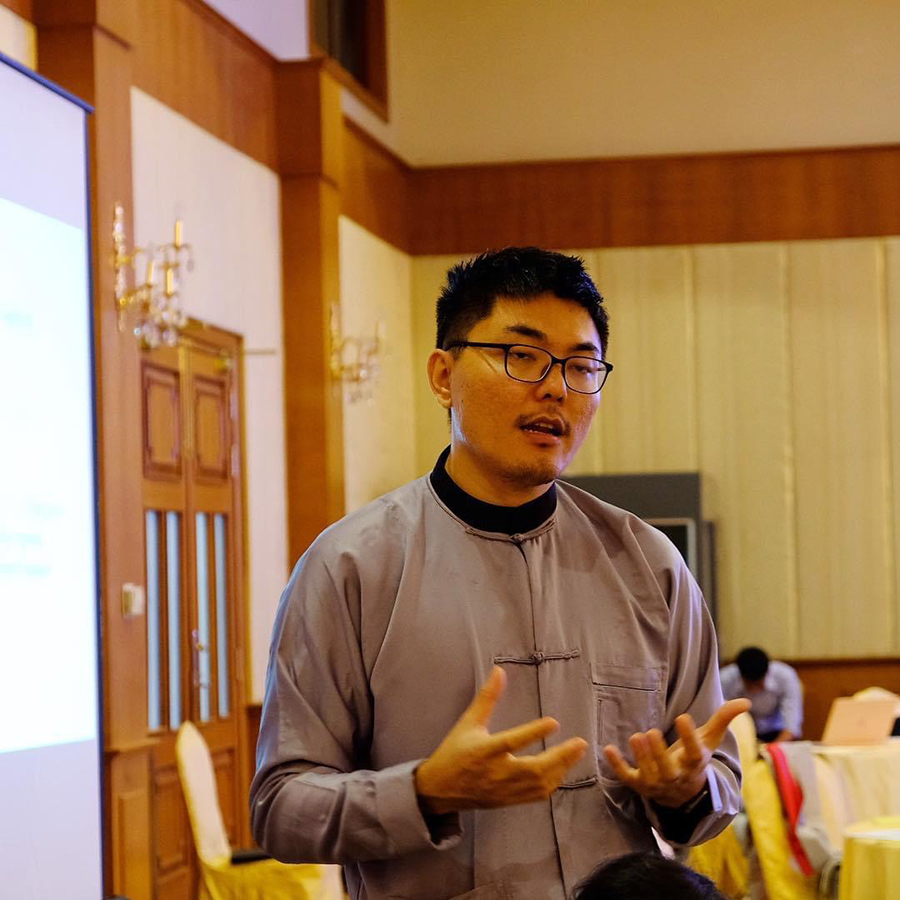
“There are many government departments and officials responsible for this landslide incident. The Myanmar Gems Enterprise is fully responsible for the management of the gem mining business, because it issued licenses for the companies. Moreover, the Ministry of Natural Resources and Environmental Conservation [MONERC], the Kachin government and the General Administration Department [GDA] are also responsible for the incident, as they play administrative and management roles.
“The Myanmar government has been a member of the Extractive Industries Transparency Initiative (EITI) for more than five years. The government has made some reforms in natural governance, however, the actual implementation of those reforms is still weak on the ground; in particular, government departments aren’t sure about their roles—whether they need to rein in the mines systematically, or focus on seeking revenue from the mining business.
“They [authorities] should understand that a landslide could happen during the rainy season, as the companies do not follow safety procedures, especially on how to dispose of loose dirt and rubble. They should have prepared a standard operating procedure [SOP] for mine management before it happened. From a management point of view, the incident showed that they are very weak in this area.
“More importantly, when you look at all the license holders of large mining businesses in Hpakant, most of them are politically powerful to some extent. That is one of the reasons the government has not carefully regulated jade mines. So, for the NLD government, that might have been one obstacle to pushing for reforms.
“There are only three major groups operating jade mining businesses in Hpakant: military-owned companies, companies owned by armed groups, and cronies [of the authorities]. The biggest question is whether, in closed-door meetings, the NLD government has made an agreement with the military or other powerful groups not to touch this issue during the transition period. There is no way to know, because the discussions have not been made public by either side. My concern is that they [the NLD] might have made a promise not to handle it strictly.
“Moreover, previous administrations granted jade mining licenses to armed groups as part of the ceasefire agreement. But those are not in line with international mining standards. The current government has imposed a new law, but it is still hard to get those mines to follow the law. Frankly, it is also a legacy issue.
“The problem still exists because the current ruling party is burdened by the policy mistakes of previous administrations; also they have not done all they are capable of doing as a civilian government, especially when it comes to implementing certain essential reforms.
“To solve the deadly jade mine issue, the government firstly must admit that the current policy is wrong. Secondly, they must form an independent inquiry to establish what needs to be done to avoid further disasters. The government has amended the Myanmar Gem Stones Law twice, in 2016 and 2019. But the law still has weaknesses; in particular it still needs to address how to handle environmental management properly while gems are being mined, and how to solve the jade prospectors issue. Moreover, it still needs to enforce the law and regulations so that the government fully benefits from the mining business.
“We have tried several times to address these problems. We sat together with all the stakeholders to find solutions. A consensus was reached on a policy for gem mining that could be issued as a guide [for the industry]. The policy is pretty good, because it takes into consideration the different points of view of all stakeholders including businesses, local people and jade prospectors. However, the related government ministry is not willing to get involved in it. I think the policy is really good and could definitely lead to a change in existing conditions. That could be the main reason that the government ministry wasn’t willing to proceed with it. As I said earlier, the question is whether the NLD made some agreement with powerful people not to touch the issue [of regulating mining during the transition period].
“The MONERC is under the civilian government. However, if the MONERC ordered a halt to all mining activities and withdrew all the license permits, the problem would be, how would the armed groups react? As we already know, those groups are too powerful in Myanmar’s peace process and in politics.
“Blaming only the jade prospectors is not the right solution. All citizens have an equal right to operate businesses. But in reality, only a handful of companies with powerful backgrounds monopolize natural resources in Hpakant. They are also breaking the law, including by selling gemstones illegally, failing to pay taxes and extracting resources on a scale far in excess of what is approved for their projects. The government must enforce the rules and regulations to tackle those problems as well.
“When it comes to enforcing the regulations, the government needs to ensure fair distribution across the country of the profits from natural resource extraction. From a political point of view, I think it should handle this based on the principles of a federal Union. I am talking about not only the profits from jade mining, but also from all the natural resource extraction in the country. Doing so will create a win-win situation for all stakeholders. After that, the government needs to look at it from a technical point of view, especially how to grant licenses and how to handle environmental management properly. I acknowledge that the issue is very complex, and involves politically powerful people. But as a civilian government, the NLD government must handle the issue with political will.”
U Win Myo Thu
Director of EcoDev Myanmar
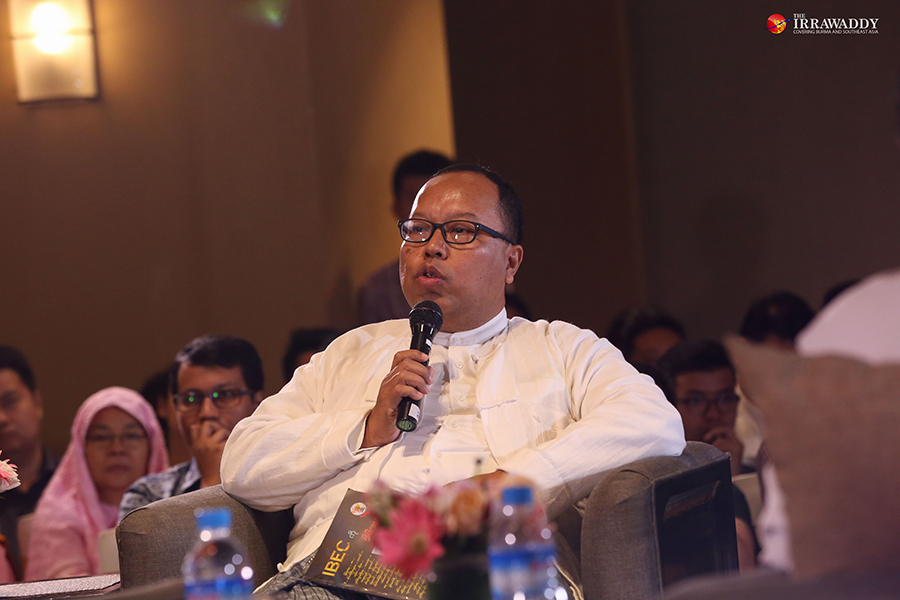
“The most important thing for the government is to focus on environmental management of jade mines, as it is currently a total mess. The government must draw up Strategic Environmental Assessments (SEAs) for jade mines in Hpakant. Moreover, it needs to identify the locations of jade mines, draw up a comprehensive zoning plan in order to apply environmental management properly, and enforce the standards that are to be followed by companies granted mining licenses in Hpakant.
“Currently, the related ministry has only instructed companies to carry out individual environmental management plans. But that is not good enough from an environmental management point of view. Moreover, they [mining companies] don’t follow the rules and regulations, particularly when it comes to their careless disposal of loose dirt and rubble. Furthermore, the government department has not been able to oversee the activities of mines and take proper action.
“That’s why the government needs to draw up a zoning plan [for the area] as a whole— not separately. Additionally, the authorities need to create a level playing field for all stakeholders. So, they need to designate blocks for large companies, small companies and freelance miners.
“Literally, all jade mining has to stop completely if we want to carefully identify the problems and stop the environmental damage. As far as I know, the NLD government has tried to stop [the issuing of] license permits, but the previous government granted some licenses that are valid until 2021. So they can’t do anything. Moreover, if the government ordered the mining to stop completely, nearly half a million people would lose their jobs. They would surely complain to the government. So, this is tricky for the NLD government to handle.
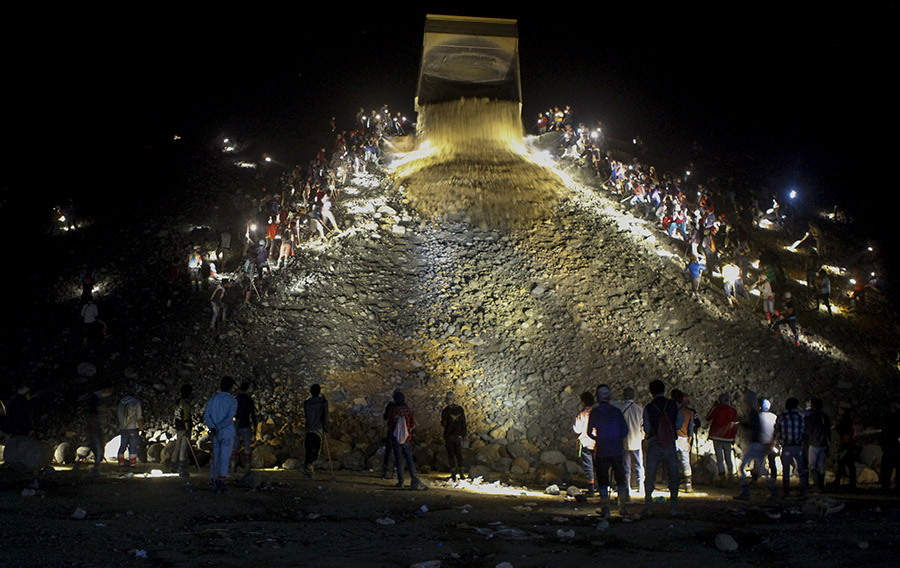
“Daw Aung San Suu Kyi has often mentioned that Myanmar will follow the EITI standards. But on the ground, the situation is completely different. I was part of the EITI team. International organizations found out that Myanmar produced jade worth more than US$30 billion [41.03 trillion kyats] annually. But the official figures showed that we only sold $2 billion worth. So we need to determine how much we produce annually on the ground.
“We also need to build a system to trace production capacity. According to the regulations, all the jade must be sold at the jade emporium. But we all know that a large amount of jade is sold illegally. According to the government’s procedures, a company has to submit a list to the authorities stating how many tons of jade they produce in a given period of time. After that, the authority checks the list and approves it. So, we asked them to provide lists. But they denied our request without giving a proper reason. If the data are accurate, they should be willing to show us.
“We [EITI] also tried to send foreign experts to Hpakant to check the data on the ground, such as how many tons of jade were extracted. According to the procedures, we had to ask permission from the Security and Border Affairs Ministry and the military, as they are in charge of security in that area. But they responded that they couldn’t guarantee the security of our experts. Since they denied our request, the state government also denied it. So, the Union-level authorities decided not to allow foreign experts to enter Hpakant for security reasons. We all know that there are many foreigners living and working [there] for various reasons. But they denied us permission because they don’t want an investigation. It is very clear that if they didn’t have anything to hide, they would have allowed us to investigate the data.
“I understand the NLD’s position on the issue. They can’t issue orders to the ministry, which is under the military. If they push too hard, it will create political friction between the two sides. This creates a question over whether we have rule of law, if the government’s administrative power does not apply in that area.
“If we cannot do a simple investigation of the data, it would be hard to push for further management [improvements]. There has been no proper investigation of how companies carry out mining, dispose of the loose dirt and rubble, and how they carry out environmental management plans. Even if EITI suggested improving the level of environmental protection, the government could not implement it, because the people on the ground are not following their instructions.
“EITI made a lot of suggestions to the government, but they have followed very few of them. There are many things that the government could do on the ground. But it seems they don’t listen to us. But we can’t put all the blame on them. It is because of the people behind the mining businesses there. They are politically powerful people.
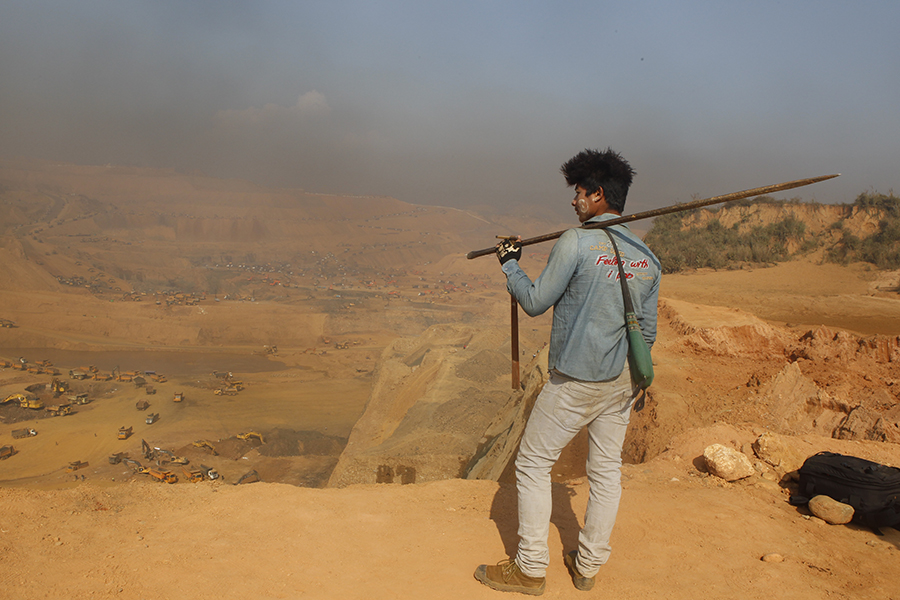
“In my opinion, the key to solving the Hpakant issue is neither a technical problem nor a mining technology problem. Nor is it an environmental management problem. The real problem is political. The situation in that area is complex. Some areas are controlled by the government and the military, and some are controlled by the armed groups. Given this situation, nobody wants to follow the EITI standards and it is also hard to push them to follow the regulations.
“At peace meetings we have often raised the issue of equal resource- and power-sharing in ethnic states. All the stakeholders need to agree on how much the Kachin people should receive in terms of benefits from the resources extracted in Kachin State. After we reach a consensus, we should allow the projects to move forward. The root cause is a political problem.
“The revenue from natural resources account for 60 percent of total [Union] government revenue. But the Union government only provides 12 percent of [each state’s] total expenditure. In other countries, the [central] government provides at least 18 percent of a state’s expenditure. So, we are below the average level. So, ethnic people have the feeling that natural resources have been extracted from their states, but they don’t really benefit from it. It is also one of the main demands made by ethnic people at peace talks.
“Currently, there is no rule of law in the area and it is hard to control—it looks like hell. If the government doesn’t implement significant reforms, and if it just maintains the status quo, the current problems there will only worsen.”
You may also like these stories:
Hpakant Landslides Continue to Kill

















